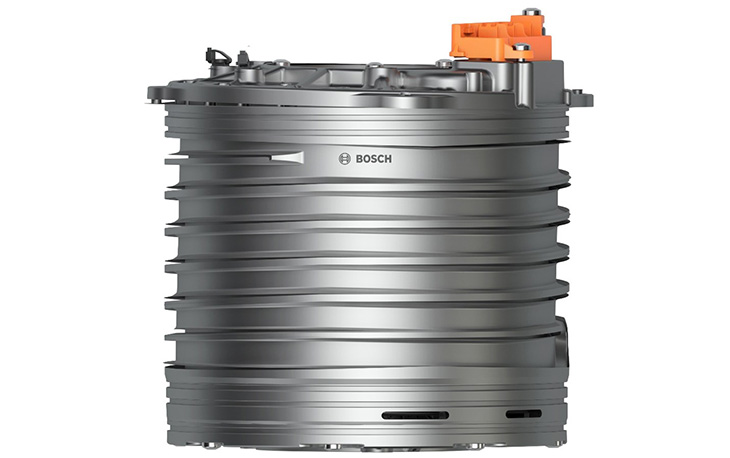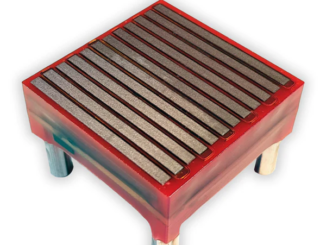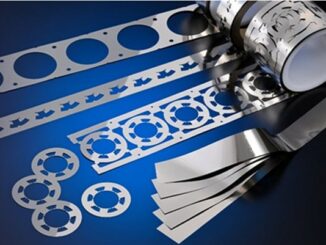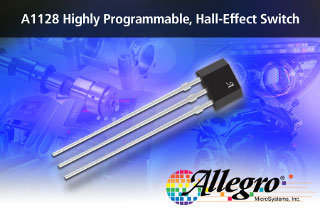
Using hairpin winding technology to maximize power density and fresh approaches to cooling, Bosch has developed a new efficient electric motor for commercial and medium-duty vehicles. The new 230 electric motor has a rated voltage of 800 volts and is designed for long service life. Bosch introduced the motor at the Motor Bella autoshow held in Michigan in September, along with an array of its other e-mobility solutions.
During development of the motor, Bosch engineers paid particular attention to optimizing the continuous power density to enable a compact design and easy integration into electric rigid axles. To achieve this, hairpin winding technology is used in the stator as well as combined oil-water cooling. The rotor and stator are internally oil-cooled and the active parts are installed in a water cooling jacket. The motor is available in power ratings between 150 and 230 kilowatts continuous output.
“When it comes to electromobility, the Bosch portfolio covers a vast array of possibilities to support our customers in bringing new electrified solutions to the market,” said Paul Thomas, executive vice president, Mobility Solutions for the Americas at Bosch. “From powertrains to steering systems to brakes, Bosch’s portfolio includes all the building blocks for the electrification of vehicles and allows for a seamless integration into our customers various electrical and vehicle architectures.”
In 2021, the company spent about $800 million on developing electrical mobility solutions, including fuel cells, an increase of nearly 40 percent over 2020. About $250 million of that involved capital expenditures In North America.
The portfolio also includes an advanced inverter with silicon carbide technology. The improved electrical conductivity of the semiconductor material reduces heat losses, enabling higher switching frequencies and improved power density. With this Bosch achieves an efficiency of up to 99 percent in its new generation of inverters. Silicon carbide chips used in power electronics can improve the efficiency of the battery powertrain by as much as 6 percent.
When combined, the inverter and electric motor are fine-tuned to each other to enable their use together in one system. This results in a system efficiency of up to 97 percent. Bosch is one of the first suppliers to make this possible for commercial vehicle applications, resulting in increased range or saved battery capacity. The company’s e-axle combines the power electronics, electric motor and transmission in a single unit aimed at helping automakers bring electric vehicles to market faster than before.



